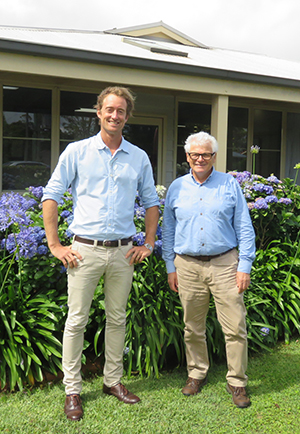Jane Barker* reflects on coordinating practicum placements for medical students with local GPs, and the positive feedback they provide.
There are many joys in teaching medical students - their enthusiasm is infectious and is a reminder of all that I love in Medicine. Fortunately for us at UCRH (University Centre for Rural Health, North Coast), more GPs in our area take medical students into their practices than don’t.
Many make very significant commitments to teaching, being involved in the longitudinal placements in general practice or taking the more traditional shorter student placements regularly throughout the year. Others do what they are able to do within their own constraints of time and space. Most find this really rewarding.
It is vital that all students, whatever their future aspirations, develop a deep understanding of the pivotal role of general practice in the community, and indeed in all health care. What better place to learn this than our country general practices!
Each week while students are on their general practice rotations, I meet with them and we have time for reflection. They talk about the patients they have seen, but are also acute observers of the GP/patient interaction - if, of course, they have not been left in a corner to nod off…
Students learn through observation and imitation, so we should never underestimate the power of role modelling. In fact, role modelling has been called our most powerful tool in medical education.
General practice is a wonderful place for students to really understand the value of good communication, the power of empathetic listening and connecting with patients at a level that allows a deeper understanding of who they are and what their needs are. They come to learn of the importance of continuity of care - not only in note keeping and effective referral and discharge summaries, but of the joy many GPs have in their long-term relationships and friendships with their patients.
Students inevitably comment on this, sometimes in surprise, because they don’t see it in the hospital setting, but often in awe. They love the pictures of Juriaan Beek with the generations of babies he has delivered, Juriaan having brought into the world a good half of Casino! They note the breadth of knowledge GPs need to have. They even get excited about seeing an in-growing toe nail or a case of measles.
More often than not, they find these placements valuable and enjoyable. Sometimes GPs have invited them home or to join them in a run or a cycle. This really makes them feel cared for.
Our students are often overwhelmed by all they need to learn, and it is great for them to see that establishing a work/life balance is a real possibility, even within a busy working life.
We have been hearing a lot about medical student burnout and the development of anxiety or depression. For that reason alone, the role modelling of taking care of ourselves and looking after our own health is really important.
I find it most rewarding when general practice resonates with a student and they feel they have found a future career path, sometimes when they have despaired of ever finding a place they feel they could fit in.
One student reported to me - “I did not like hospital medicine or the way I was being taught. When I went into my general practice it was like a family. The doctors all treated the patients as friends and knew all about them. I learned better in that caring environment.”
Of course reports are not always rosy. Sometimes students question when GPs are not following clinical guidelines or evidence base, and we discuss issues of patient centred choices, intuition and how GPs may individualise treatment according to their knowledge of a patient’s needs.
Sometimes they have questioned how the GP has related to a patient. Sometimes, though fortunately rarely, they have been unhappy with their relationship with the GP.
Recently in the media much has been discussed about bullying in medicine. It appears that in some areas it is alive and well, but at least it is now being challenged. As with other forms of abuse, it is perhaps generational.
There are those who believe it was the way they learned and was the only way to learn. Others believe it builds resilience, while some are not even aware that the student or junior staff member feels bullied and may be shocked when they realise this is the case.
Can bullying really generate competence and confidence? Can we really hope that our future workforce will be caring and compassionate if bullying through intellectual humiliation is what we choose to role model?
Of course GPs may find the students far from perfect – but which of us was at that stage? How best do we instill professionalism? How best do we teach the art as well as the science of medicine? How best do we teach “That to care for a patient we must first care about them?" First and foremost, this has to be demonstrated through our role modelling.
We have a wonderful chance when we welcome medical students into our practices for succession planning and to influence the future of medicine.
“Is this the doctor I want caring for me?”, I now ask as I move into middle age. Role modelling is powerful but we should take care what we role model - it could come back to bite us when it is our turn to be the patient!
Jane Barker is a long-serving Northern GP who works as education coordinator at the University Centre fo rRural Health North Coast.
















